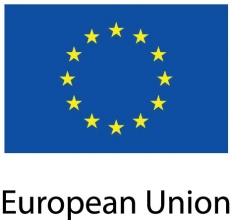Part 1 of 2 Parts
European states want to free their energy supply from all Russian influence. In order to do that, they will have to detach themselves from Russian nuclear supplies in the long run.
The European Union (E.U.) has imposed a wide range of sanctions on Russia since it invaded Ukraine in February of 2022. Since the invasion, the E.U. has managed to almost entirely free itself from the need to import Russian gas and oil.
However, there is one part of the energy sector that has remained virtually untouched. That is nuclear power. Rosatom is the Russian state-owned nuclear energy company. It is one of the few Russian companies that is still operating in the E.U. despite the fact that in January 2023, news broke in the western media that Ukrainian intelligence had uncovered documents that proved that Rosatom was planning on sending sanctioned goods to the Russian military. Utilizing its legal operations in the E.U., Rosatom can provide the Russian arms industry with much needed technology and fuel.
In spite of E.U. efforts to quit importing Russian fuels and the Ukrainian calls for sanctions on Rosatom, numerous E.U. member nations have opposed banning the company. They cite serious energy supply concerns.
Nuclear energy accounts for about a quarter of the E.U. total energy consumption. However, the percentage is much higher in countries such as Bulgaria and Hungary which rely on Soviet-era reactors. As would be expected, in March of 2023, both countries along with France, opposed sanctions on Rosatom.
The Russian nuclear industry is huge. Russia produces about eight percent of the world’s raw uranium supply and about thirty eight percent of uranium converted to nuclear fuel. In addition, Russia is also home to about forty eight percent of the world’s uranium enrichment capacity.
The E.U. receives about twenty percent of its natural uranium from Russia. It also sources about twenty percent of its enrichment services. These numbers are based on data from the World National Association.
There are eighteen nuclear power plants in the E.U. which are based on Russian designs and rely on Russian imports. All of these plants would be affected by E.U. sanctions on Rosatom which continues to supply nuclear fuel rods.
This is especially challenging in nations with a high consumption of nuclear power such as Slovakia (fifty-four percent), Hungary (forty-six percent), Bulgaria (thirty seven percent) and Czechia (thirty-six percent).
Some E.U. members have tried harder than others to eliminate Rosatom technology and services. Bulgaria and Czechia have both recently signed contracts with Westinghouse to replace nuclear fuel imports over the next three years.
According to data compiled by Politico, the value of Russian nuclear imports to Bulgaria and Czechia fell by forty-seven and twenty-six percent respectively in 2022.
Bulgaria laid out a new energy strategy in January of 2023 which included plans for two new reactors at its Kozloduy plant and two more new reactors for a new plant near the island of Belene.
Please read Part 2 next
